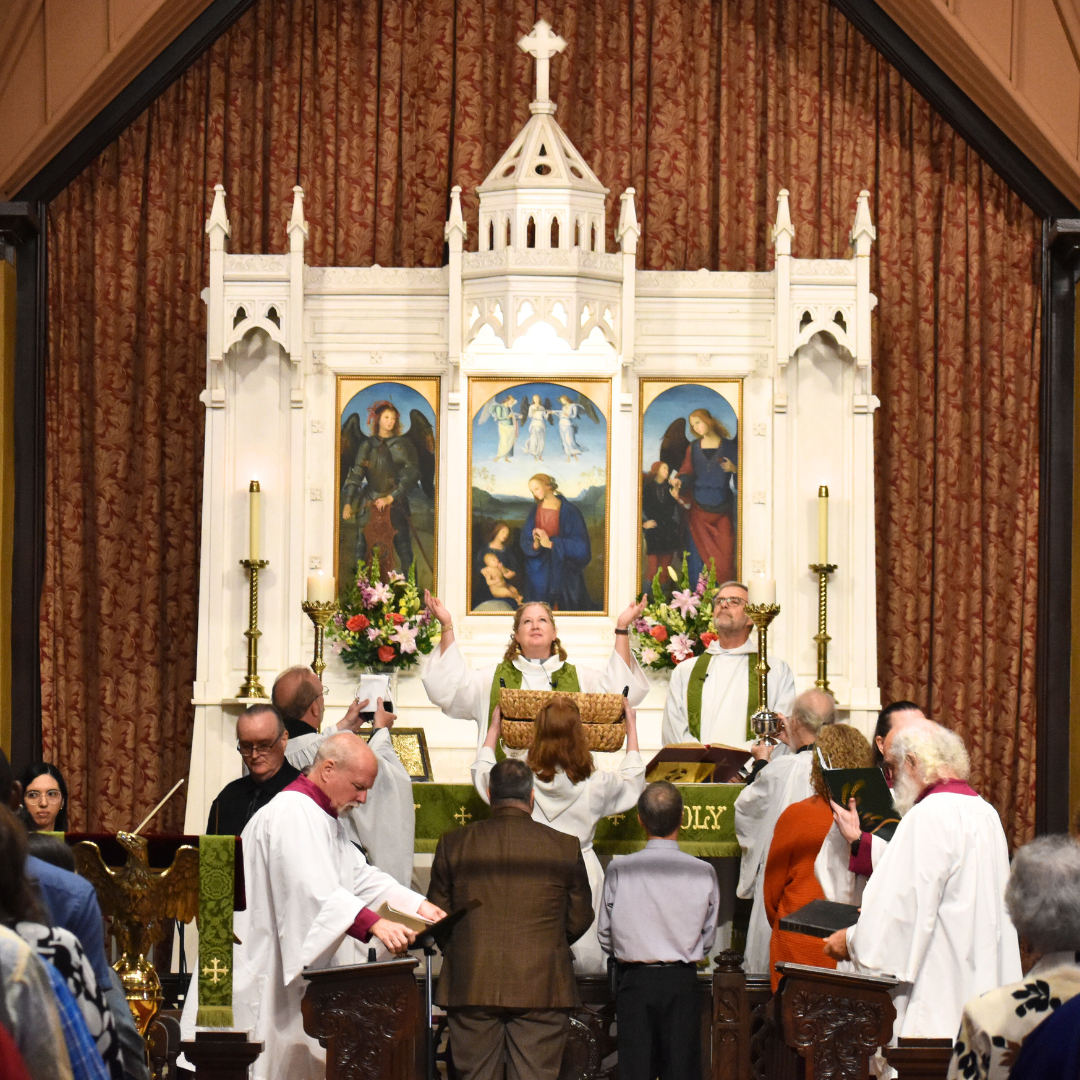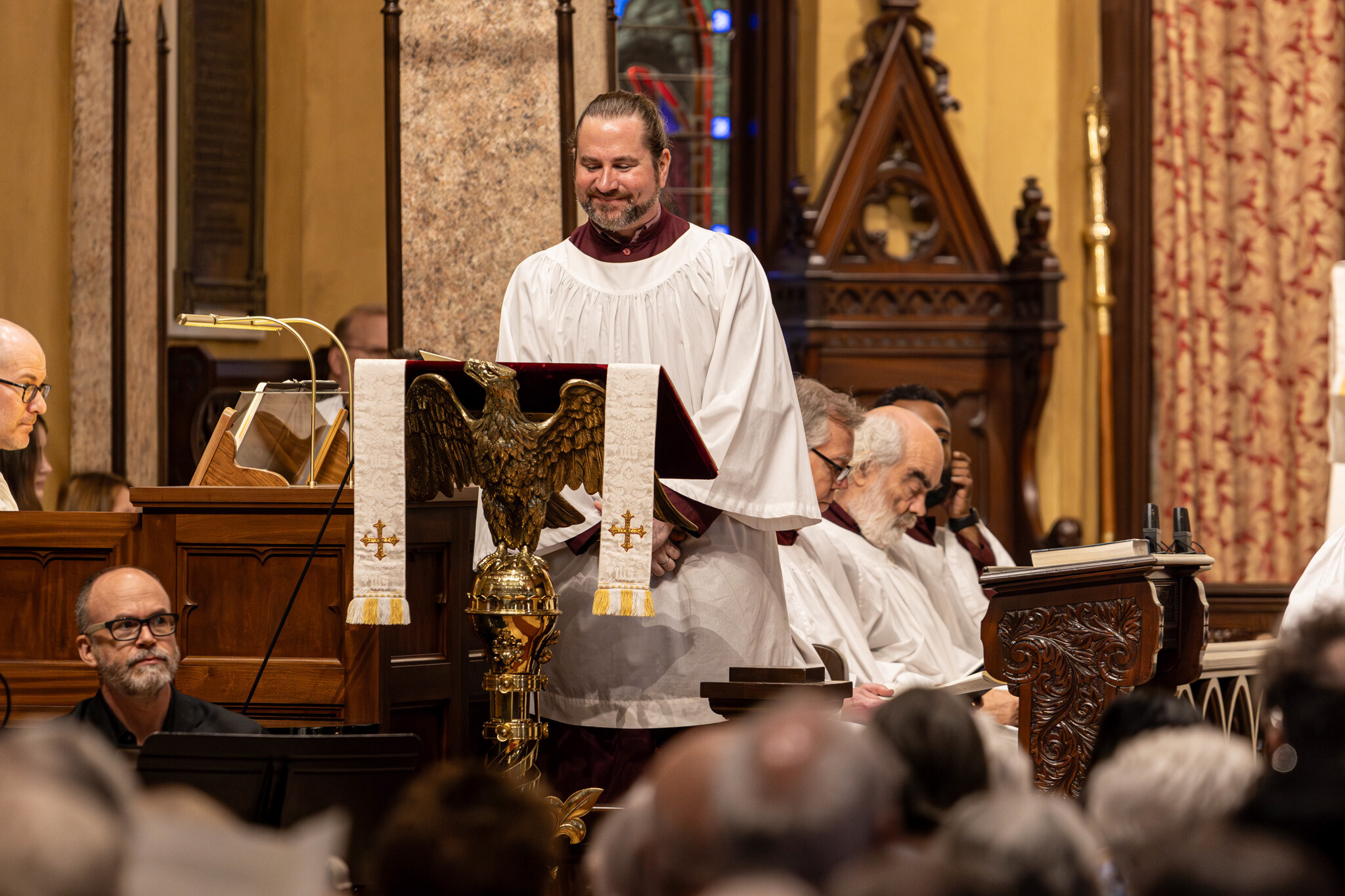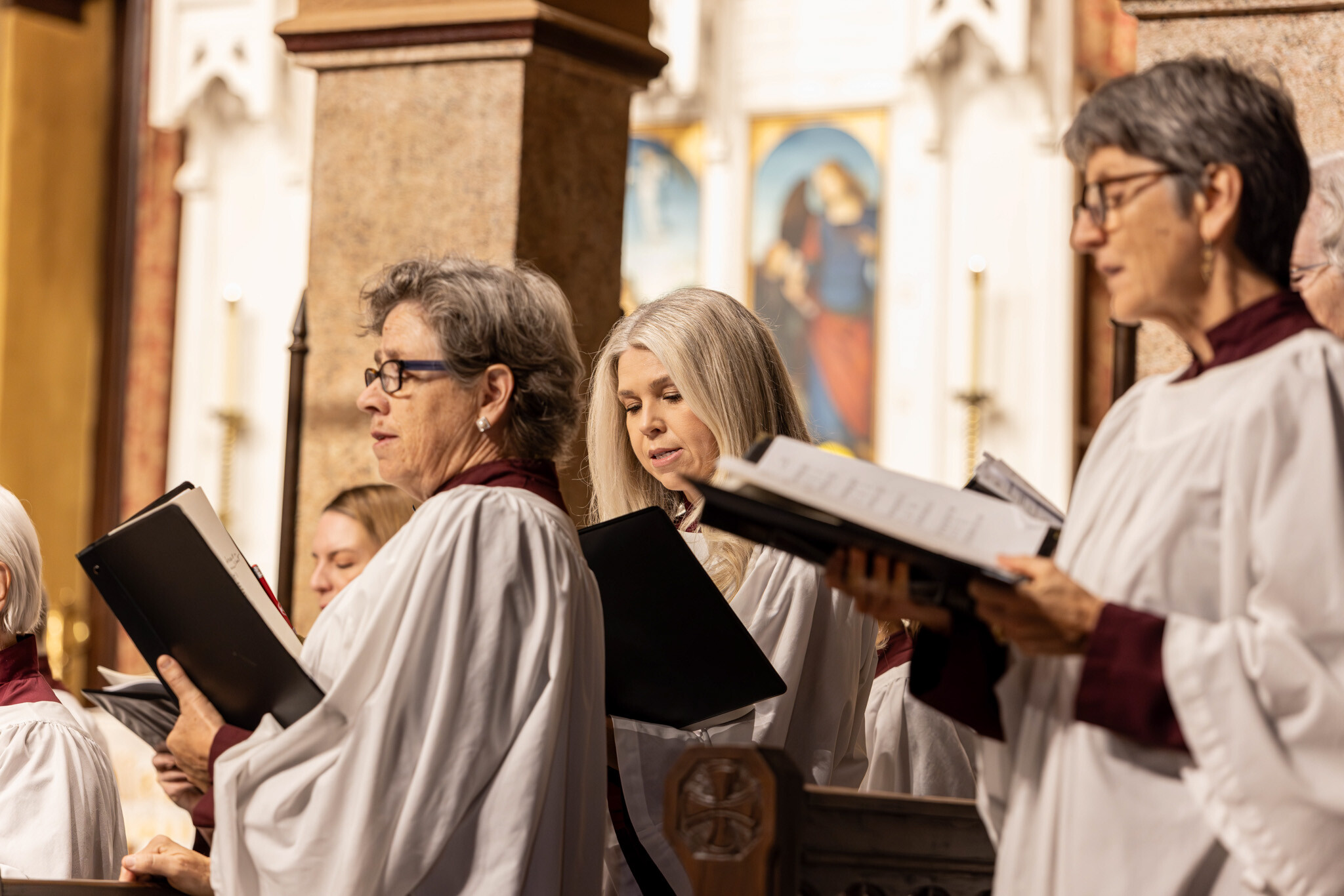
Faith, discipleship, and stewardship – of many kinds of gifts – form a nexus of themes this Sunday as we move further into the travel narrative of Luke’s Gospel.
This year’s stewardship theme is ‘Tell out, my soul!’, inspired by Hymn 437/438. This paraphrase of the Magnificat, or Song of Mary (Luke 1.46–55), was written by Timothy Dudley-Smith, an important English hymnist (and later bishop), in 1961. Inspired by the translation of the relevant passage in the then new New English Bible, he took its first line over as the first line of his poem, repeating the first four words at the beginning of each stanza, continuing each with various characteristics of God highlighted in the Magnificat. We will sing one stanza of ‘Tell out, my soul’ each week this month as the Song of Praise, and then sing the entire hymn on Harvest Sunday, using the tune printed at 438, ‘Woodlands’. This tune combines a marchlike accompaniment with a wide-ranging melody in a style familiar from other early-twentieth-century English hymn-tunes such as ‘Sine Nomine’ and ‘Engelberg’.
Both the Gospel and the Epistle deal in some way with matters of faith and discipleship. Have true faith, and miracles will follow, says Our Lord; furthermore, do what is expected of a follower of Christ, and do not seek a reward. Paul, writing to his protégé Timothy, urges him to hold to the Apostle’s teaching, to ‘guard the good treasure entrusted to you, with the help of the Holy Spirit living in us.’ These themes are picked up in some of our hymns and our Communion anthem: the second stanza of ‘If thou but trust in God to guide thee’ [635] urges the singer–listener to ‘Sing, pray, and keep his ways unswerving / so do thine own part faithfully.’ In ‘O Master, let me walk with thee’, we pray to follow Christ in service, patience, faith, trust, hope, and peace. ‘Gracious Spirit, dwell with me’, our Communion anthem, is a prayer to the Holy Spirit for the singer to be imbued with some of her actions and attributes: grace, healing, truthfulness, wisdom, holiness, strength. The modern setting by K. Lee Scott uses the hymn-tune ‘Adoro devote’ (‘Humbly I adore thee’ [314]).
Our semi-continuous series of readings from the Hebrew Bible brings us to the beginning of the Lamentations of Jeremiah, a series of alphabetic acrostic poems concerning the exile of the Judeans in Babylon, familiar from their use in the liturgies of Holy Week. Appointed to follow the Lamentations is Psalm 137, which vividly depicts the exiles’ response to the taunts of their captors: How can we sing a happy song of our homeland while in exile? they ask. Instead, we hang up our harps and weep: but may we be tongue-tied and all thumbs if we forget Jerusalem!
Among the very early repertory of the German-speaking Reformation were some Psalm-paraphrases (which inspired, and in some cases became part of, the French-language Calvinist Genevan Psalter as well), including a version of this psalm, ‘An Wasserflüssen Babylon’. From among many polyphonic settings of this song, this week the choir sings a setting by Benedictus Ducis taken from a 1544 collection published for use in schools. In this three-voice, single-strophe setting the melody appears in long notes in the upper voice. The English translation we sing is taken from the first printed English-language collection of religious song, the reforming bishop Myles Coverdale’s Goostly Psalmes and Spirituall Songes (1535), which included this and adaptations of many other early German Reformation songs.




Login To Leave Comment